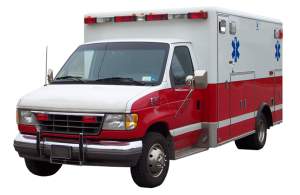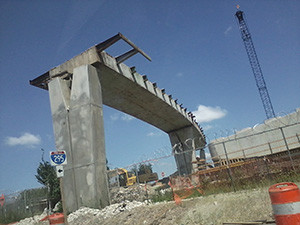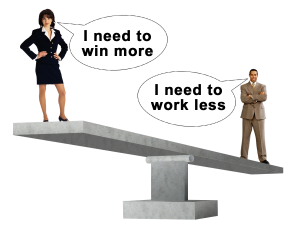 If you need business development help, you’re not alone. Many companies lose too many bids, work way too hard on their capture and proposal deliverables, or both. Subject matter experts are anxious, proposal managers are overwhelmed, writers are overworked, and editors, graphic artists, and desktop publishers are ill equipped. Management is frustrated and too busy to take action. No one knows when to ask for help and how to find it.
If you need business development help, you’re not alone. Many companies lose too many bids, work way too hard on their capture and proposal deliverables, or both. Subject matter experts are anxious, proposal managers are overwhelmed, writers are overworked, and editors, graphic artists, and desktop publishers are ill equipped. Management is frustrated and too busy to take action. No one knows when to ask for help and how to find it.
How Consultants can Help
Here are three common reasons companies hire consultants to fill their proposal development needs.
- Emergency help
- Increase efficiency (minimize the pain)
- Increase effectiveness (maximize the gain)
 Emergency help. Companies often wait until they have reached a crisis before they seek outside assistance. A typical call for emergency proposal support requires immediate attention (within 24 to 48 hours) or the proposal will be in serious jeopardy. Proposal consultants are uniquely qualified to assist in times of emergency. They are pre-programmed to step into the proposal crisis quickly, assess the damage, and deliver immediate results (without the time-consuming distractions and politics often faced by the rest of the team).
Emergency help. Companies often wait until they have reached a crisis before they seek outside assistance. A typical call for emergency proposal support requires immediate attention (within 24 to 48 hours) or the proposal will be in serious jeopardy. Proposal consultants are uniquely qualified to assist in times of emergency. They are pre-programmed to step into the proposal crisis quickly, assess the damage, and deliver immediate results (without the time-consuming distractions and politics often faced by the rest of the team).
Increase efficiency (minimize the pain). Most organizations have fluctuating proposal needs that require specialized skills, but these needs are often not sufficient in scope and duration to justify hiring a full-time employee. External consultants can relieve the pain caused by proposal resource gaps or other process inefficiencies. They bring specialized skills and experience for concentrated bursts of activity so that you can redistribute the workload for a discrete set of tasks over time. Once the task is completed, or your resource gap is otherwise filled, you can either say goodbye to the consultant or keep him or her around to focus on more strategic needs—until the next proposal wave hits.
 Increase effectiveness (maximize the gain). Sometimes companies have the foresight and discipline to take an objective look at their proposal development people, processes, and technology infrastructure. By looking at each element closely and objectively with an outside consultant, organizations can find ways to improve. A little advanced planning increases business development effectiveness, leading to higher proposal quality and win rates.
Increase effectiveness (maximize the gain). Sometimes companies have the foresight and discipline to take an objective look at their proposal development people, processes, and technology infrastructure. By looking at each element closely and objectively with an outside consultant, organizations can find ways to improve. A little advanced planning increases business development effectiveness, leading to higher proposal quality and win rates.
Proposal consultants can provide new ideas, processes and procedures, methods, templates, and other tools. They are uniquely positioned to deliver fresh, unbiased opinions and practical recommendations that are largely unencumbered by either personal or political agendas. They can bring clarity and attention to an initiative that is oftentimes difficult to achieve with internal resources by adding an informed, external perspective. With outside help, your on-staff proposal resources can spend more quality time on the current bid, devote attention to other bids, support existing billable projects, or even enjoy a weekend with family and friends.
Finding Consultants is Hard
 The decision to hire a proposal development consultant is relatively easy compared to the more challenging task—how to find and hire the right one. It should come as no surprise that consultants work out best for companies that have clearly defined project roles, responsibilities, and capability requirements. Cultural fit is also an important consideration that is often underestimated or ignored altogether.
The decision to hire a proposal development consultant is relatively easy compared to the more challenging task—how to find and hire the right one. It should come as no surprise that consultants work out best for companies that have clearly defined project roles, responsibilities, and capability requirements. Cultural fit is also an important consideration that is often underestimated or ignored altogether.
In the Washington, DC, area alone there are literally hundreds of proposal development consulting companies and individual consultants. On the surface, Internet inquiries seem like a reasonable starting point, but this approach can be surprisingly ineffective and inefficient.
Despite the power of Internet search engines, many of the first few electronic pages are filled with jobs posted by competitors looking for the same consultants you currently seek. Although some proposal development consulting companies and individuals are listed, many of these either have bought their way to the front pages, or have used tech savvy search engine optimization tricks to achieve higher listings. Resist the search engine urge and consider taking a more focused and personalized approach.
- Start with a detailed job description
- Talk to friends and colleagues
- Leverage your local APMP chapter
- Tap into social networks
- Talk to us to help you narrow down the field
To learn more about how consultants can help and how to find the right one at the right time, see the 5-part article: Are Consultants the Answer to Your Proposal Challenges?
Next Steps
 The next steps are up to you. Are you ready to reach your goals of winning more and working less?
The next steps are up to you. Are you ready to reach your goals of winning more and working less?
- Call or email to discuss your current challenges, concerns, and future goals
- Schedule an introductory face-to-face meeting to explore consulting support options
- Request references, customer satisfaction evaluations, or other information
- Spend more time researching proposal consulting companies
- Procrastinate until something more important or immediate comes up
- Do nothing and continue to work too much and lose too many pursuits
Project Examples
Projects range from one-day/one-consultant proposal reviews, to large, complex 60-day proposals requiring large teams of managers, writers, editors, and graphic artists. Most of our work is in the greater Washington, DC area. However, we routinely support out of state and out of country customers (either locally or remotely).
No project is too large or too small. Here are a few examples of typical projects. If you have budgetary constraints, the level of effort is up to you.
- Detailed Proposal Outline (2-3 hours)
- Proposal Theme Development (4-6 hours)
- Executive Summary Development (4-6 hours)
- Detailed Proposal Review (4-8 hours)
- Proposal Training (2-12 hours)
- Orals Coaching (5-10 days)
- Proposal Development Support (5-30 days)
- Large-scale Proposal (45-60 days/6 consultants)
- Part-time Capture Support (10-20 hours/week for 3-6 months)
Project Costs
Projects are typically billed on a time and materials (T&M) hourly basis. Rates are flexible based on a number of factors including project duration, location, role, experience level, budget, level or effort, and other factors. We will work closely with you to identify a minimum of 2-3 consultants for each of your required roles that meet your specifications and constraints exactly.
Interested in free support? Contact us about our intern program.

